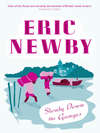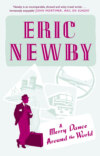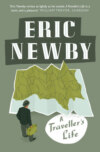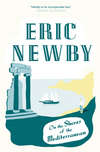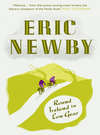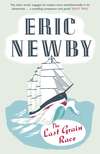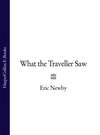Kitabı oku: «Slowly Down the Ganges», sayfa 2
CHAPTER ONE Long ago on the Ganges
Gange Cha Yamune Chaiva
Godavarai Saraswati
Narmade Sindhu Kaveri
Jale Asmin Sannidhim Kuru
(O Holy Mother Ganges! O Yamuna! O Godavari! Saraswati! O Narmada! Sindhu! Kaveri! May you all be pleased to be manifest in these waters with which I shall purify myself!)
Prayer to the Seven Sacred Rivers recited by
every devout Hindu at the time of taking his bath
I love rivers. I was born on the banks of the Thames and, like my father before me, I had spent a great deal of time both on it and in it. I enjoy visiting their sources: Thames Head, in a green meadow in the Cotswolds; the river Po corning out from under a heap of boulders among the debris left by picnickers by Monte Viso; the Isonzo bubbling up over clean sand in a deep cleft in the rock in the Julian Alps; the Danube (or one of its sources) emerging in baroque splendour in a palace garden at Donaueschingen. I like exploring them. I like the way in which they grow deeper and wider and dirtier but always, however dirty they become, managing to retain some of the beauty with which they were born.
For me the most memorable river of all was the Ganges. I had not seen it for more than twenty years since the time when, as a young officer, I had spent six months on its banks at a remote military station some fifty miles from Kanpur.
I arrived there in March, at the start of the hottest season. That summer in the Indian Plain is something which I can never forget, and yet it is something which I find difficult to believe that I ever experienced. I remember a sky like an inverted brass bowl overhead and the earth like an overcooked omelette beneath it.
Through this desiccated landscape the Ganges flowed, not more than a couple of hundred yards wide. It was a disagreeable shade of green and in it floated imperfectly cremated corpses and an occasional crocodile.
All through March and April it was terribly hot but during the second week of May the weather began to change for the better. There were two light showers of rain, the first harbingers of the monsoon, and the midday temperature sometimes fell as low as a hundred degrees Fahrenheit.
On 20th May I was standing on the parade ground where I had been teaching recruits to do up their boots. All that day the sky had been overcast. All afternoon it had been very quiet. At four o’clock the recruits were dismissed and they were clumping off to their tents in their great, newly-tied boots when suddenly they began to utter moaning sounds, break their ranks and run for their lives. I wondered if it was another Indian Mutiny.
It was only a dust storm. It came roaring across the plain as black and solid-looking as a cliff. I took one look at it, got on my bicycle and fled.
I reached my bungalow at the same time as the sandstorm and locked the door on it. Outside it was as black as night, the electric light cables snapped, trees were uprooted and a large marquee complete with flailing guy ropes and tent pegs whistled past on the wind. There was a terrible roaring sound. It lasted half an hour, then the wind died away as quickly as it had come, by which time the floor of the bungalow was ankle-deep in sand – one of the windows had been broken by the wind. It was succeeded by a violent rainstorm with thunder and lightning.
When it was all over I put on some old clothes and a pair of gumboots and went down a sunken lane to the river, churning my way through the mud.
At the foot of this lane which was thickly overshadowed by trees, there was a shrine dedicated to the god Siva. There was no temple, just a lingam, a black stone on a plinth at the foot of a pipal tree on which offerings of sweets and marigolds were scattered. Although I went there almost every day and I never saw anyone else, the offerings were always fresh. Buried in the heart of the tree itself, which had grown round it, there was a block of stone with a frieze of figures carved on it. It was a place with a feeling of great antiquity and the magic beauty of a sacred grove in a painting by Claude.
But on this particular day I had come because I wanted to see what had happened to the river as a result of the storm.
The water was no longer green and sluggish. It had been churned until it was the colour of milky coffee and it had spread up over the low-lying bank to the north and was flowing strongly. Overhead, apart from a few egg-shaped clouds which floated across it at regular intervals, the sky was clear and blue. Beyond the swollen river the sand flats on the opposite shore extended as far as the eye could see, to a distant skyline dotted with trees which I had never noticed. Everything in this landscape was brilliant and distinct. It was like the springtime of the world.
Downstream a herd of water-buffaloes was swimming the river. Men and boys were crossing with them, perched on the backs of half a dozen beasts out on the flanks of the main body. They were shouting and laughing to one another and making encouraging noises to the animals which breasted the stream powerfully but slowly. Then they came lumbering out of the water and thundered up into the combe where I was standing, their flanks all glistening, and as they went by the riders waved their sticks at me and shouted that the hot weather was nearly over. Then they all disappeared up the hill, and I was alone by the river. There was something about it, the ability it had shown to change in the space of an hour, to expand and stretch away to distant horizons, to the existence of which I had not even given a thought, that made me long to follow it on and on until it reached the sea. The next day I went on leave to the Hills, and when I came back the rains had come in earnest and the Ganges was itself like a vast, inland sea. A few weeks more and I was sent to the Middle East. Twenty-two years passed before I saw it again.
CHAPTER TWO The first sight of the river
How magnificent she is when she flows in the valley Rishikesh! She has a blue colour like that of the ocean. The water is extremely clear and sweet. Rich people from the plains get water from Rishikesh. It is taken in big copper vessels to far-off places in India.
Sri Swami Sivananda: Mother Ganges; Yoga-Vedanta Forest Academy, 1962
Together with Wanda, my wife, I went out on to one of the platforms of the temple. Upstream towards Rishikesh, the river wound between sand and shingle, sometimes hidden from view amongst groves of trees from which long, horizontal bands of mist were slowly rising. Immediately below was the Har-ki-Pairi Ghat with its ludicrous clock tower and, just upriver from it, the barrage at Bhimgoda that channelled the water from the mainstream into the canal reducing the river below it to a trickle among stones that were the colour of old bones. This attenuated stream was the Ganges, the river that we hoped to travel down until we reached the sea. To the south of the Hardwar Gorge, here, at its narrowest, not more than a mile wide, it wound away, a narrow ribbon, reach after reach of it until it was swallowed up in the haze of the vast plain that stretched through all points of the compass from east of south to the extreme west.
Now, for the first time, I realised the magnitude of the journey that lay before us; but I had none of the feelings of the explorer. This was no uncharted river. Millions lived on its banks, regarding it as an essential adjunct without which their existence would be unthinkable, if not impossible; bathing in it; drinking it; washing their clothes in it; pouring it on to their fields; dying by it; being taken into its bosom by it and being borne away.
Even if we succeeded in reaching the end of the river this was no great feat. None of the uncommunicable pleasure that came to the first explorers to look on the great rivers of the earth, the tales of which had meant so much in my youth, would be ours, could ever be. Perhaps it was better so. I had waited many years to make this journey, since as a young man, I sat on the banks of the Ganges at Fatehgarh, and watched the herd of water-buffalo crossing the river. Whatever satisfaction I derived from it and whatever profit I might find, would probably be of the spirit, perhaps uncommunicable to others. Bells sounded and cymbals clashed in the temple. G., our companion, emerged from it, mollified and subdued by his devotions, and together the three of us went down the path to an eggless breakfast at the railway station.
We had arrived at Hardwar from Delhi, at half past six the previous morning when it was still dark. We were extremely cold – the train had been unheated and the window had remained open despite our efforts to close it. With a retinue of porters that we were already beginning to regard as inevitable, we moved off towards the waiting-room where we were to meet an agent from Shell who had been allocated the unenviable task of helping us to find a boat capable of taking us down twelve hundred miles of the Ganges to the sea.
He had not yet arrived. Soon the light of a grey dawn began to seep in under the roof of the station. It revealed a religious bookstall on which the proprietor was already beginning to set out his stock, and numbers of red-behinded monkeys which, like the cows at the station at Delhi the night before but without the religious sanction which allows cows in Hindu India to do what they like, were taking liberties with passengers’ baggage.
I bought a guide book from the bookseller. ‘Caution’, it said. ‘Hardwar is a dry area, therefore do not keep with you, any intoxicative article along with meat, eggs, etc. Wine, Bhang, Charas, Ganja, Opium, etc., are not allowed here! Those who are addicted to such habits can obtain from Lahksar, Rooorkee, or Dehradun, meat and aggs from Jwalapur (Pick-pockets theives and gamblers). Take every possible care of your valueables from theives and pickpockets; here you will find them on every step.’
With the dawn came breakfast: porridge, tea and toast, brought by a sad-looking waiter in a grimy white uniform and a head-cloth that had seen better days. He was the archetype of all the waiters on all the railway stations on which we were to breakfast. On the walls, prominently displayed, were notices warning visitors that in the sacred area of Hardwar – which included the station – neither fish, nor fowl nor eggs would be served.
Some time later the man from Shell appeared, together with a colleague. They had already tried to find a boat for us but without success. ‘If we are to do so,’ they said, ‘we should set out instantly.’ We were just getting into their motor car when G., who was going to accompany us on the first part of the journey and who was of high caste, announced that he had not yet performed his ritual ablutions. He disappeared into the station retiring-room for half an hour while the rest of the party waited in the cold, Wanda and I with ill-concealed impatience; the men from Shell with Oriental stoicism. What did Oriental stoicism conceal, I wondered – thoughts of roasting over slow fires, impalements and decapitations?
I looked into their eyes, seeking the answer, but in vain. At this moment I formed a high opinion of them that subsequent experience was to enhance rather than diminish; a circumstance which, in India, where the inhabitants tire rapidly of the visitor and the converse is equally true, is contrary to the general rule.
In a silence provoked by exasperation we set off to visit the Irrigation Engineer, whose house was by the headworks of the Upper Ganges Canal, to ask for the loan of a boat. He was away on tour, but we were told that there was a contractor, the master of a temporary bridge over the river, who was reputed to have a boat and we set off in search of him.
The contractor lived in an ancient suburb to the south of the town called Kankhal. It was a pleasant place with grass growing on the verges of the side streets, in which holy men were taking their constitutionals carrying baggy umbrellas. It was a brilliant morning and the air was as invigorating as anything from an oxygen cylinder. Our spirits rose.
His office was on the ground floor of a small building. The room was sparsely furnished with a large divan which was covered with a clean white sheet. The windows, which were glassless, were fitted with shutters, and the light that filtered through them into the room gave it the appearance of being filled with water. The five of us squatted untidily on the divan which was awfully hard, and I tried to detect some sign of interest or compassion in the flinty eye of the contractor who addressed himself, without any of the customary enquiries about one’s health and strength, exclusively to the men from Shell. He was a Brahman. He wore a little white cap, a high-buttoned jacket of village homespun with a stand-up collar and a dhoti. Normally a dhoti looks rather ludicrous when worn with socks, suspenders and brown shoes; but there was nothing comical about this man of iron. He did not offer us tea.
‘He says he has a boat that he will sell you.’
‘We don’t want to buy a boat. We want to hire one.’
‘He says he will sell you a boat.’
It was obvious that no good would come of pursuing this particular line any further.
‘Yih kisti achcha hai?’ Even after a lapse of more than twenty years I was determined to speak the language, however deplorably.
‘Is it a good boat?’
So far as the contractor was concerned I might not have been there at all.
‘He says that it is the only boat in Hardwar. He is indifferent to whether you take it or not. He also says that if you do not wish to have his boat why have you come to ask him for it? He is a villain.’
‘Can we see it?’
‘He says that you can see the boat but as there is only one he asks why it is necessary for you to see it. However, if you wish to do so he will accompany you. It is at his bridge.’
‘We don’t have to thank him, do we?’
‘It is unnecessary.’
The bridge was at a place called Chandi Ghat,* some little way downstream from the town. As we drove over the embankment built by the British on the right bank, we had our first view of the Ganges.
It was a bit of a shock. It was December, the dry season, and the river which in the rains would have been a mile wide now ran sluggishly through a wasteland of sand and stones. Although it was already so far from its source, it was no more than 70 yards wide. Most of the water was being drawn into the Upper Ganges Canal which takes off just below Hardwar.
It was a wooden bridge supported on piers of rough dry stone, and the roadway across it was covered with coarse grass. Bullock-carts with huge wooden wheels were creaking over it, towards us, loaded with bamboo from the jungle on the east bank and the drivers sat high up in the front of their vehicles like ships’ figureheads.
Moving across the bridge in the opposite direction were hill people on their way up to Garhwal, carrying pack frames with enormous loads lashed to them. With their snub noses and slant eyes they were as different from the bullock-cart drivers, who were from the river bank, as visitors from outer space. Upstream from the bridge a number of flat-bottomed country craft, like small barges, were moored to the bank. Nowhere was the water more than two feet deep. Of the boat that we had come to see there was no sign.
At this moment a number of men arrived at the water’s edge pushing a hand-cart on which there was a dead cow covered with a red cloth. They began to off-load it, intending to dump it in the river. Now, for the first time since we had met him, the contractor showed signs of emotion. It was obvious that if they succeeded in getting away with this ill-conceived burial the cow would remain stranded there, a source of embarrassment, until the end of June when the monsoon would come and wash it away and the bridge with it. He rushed to head them off. Soon the air was rent by angry cries and an interminable wrangle began.
‘You are Brahman. This is a sacred animal. She must go to Ganga!’
‘I am Brahman but you must take your sacred animal somewhere else!’
While we were waiting for the dispute to end, we sat on a log outside the bridgekeeper’s hut which was made of reeds, and looked upstream. To the right, over the river, the jungle that once had teemed with wild animals – tigers, leopards, herds of elephants, sloth bear, wolves, nilgai, antelope, black buck and the terrible wild dog – jungle in which the Indian lion survived until the beginning of the nineteenth century – and which was still well stocked with poisonous snakes, cobras and karait – broke at the foot of the hills in a green hazy sea; while far to the north, seen through the deep trench that the Ganges had dug for itself through the foothills on its way to the plains in which we now found ourselves marooned, an impressive, snow-covered peak rose, shining in the sun.
I asked what it was.
‘It is called Triyugi.’
‘What is Triyugi?’
‘Triyugi is from Treta Yuga.’
‘What is Treta Yuga?’
‘It is one part of Yuga.’
‘What is Yuga?’
‘Yuga is one age of the world. There are four Yugas and each is named after one god. There is Krita Yuga, Treta Yuga, Dwapara Yuga, and Kali Yuga. Age is preceded by period not light, not dark, called Sandhya and after it a further period called Sandhyansa, also not dark, not light. Each is equal to one-tenth of Yuga. Treta Yuga is three thousand years but with not so light, not so dark period, three thousand six hundred years. In Treta Yuga Ganga is most sacred. Altogether Yugas are twelve thousand years.’
‘Twelve thousand years isn’t all that long. The Ice Age was before that.’
‘Yes, but one year of god’s life in Yuga is three hundred and sixty years of man. Whole period is called Maba-Yuga. There are four million three hundred and twenty thousand years in Maha-Yuga.’
‘That’s still not very long.’
‘Ah, but two thousand Maha-Yugas make Kalpa and in Kalpa I am counting eight billion, six hundred and forty million years and Kalpa is only one day and one night of Brahma. After one day of life of Brahma world is consumed, except for wise men, gods and elements. Next day he recreates world and so on for hundred years until he too expires. His daughter is Sandhya, of the not light, not dark period, and with her he has much intercourse and in this way is father of all men.’
‘How long is that?’
‘I am not counting that number of years.’
On the far side of the river, lying on its side on the stones, there was a rusty tin boat. It was sixteen feet long, and the bottom was as full of holes as a colander. It was like a lifeboat thrown up on the shore, the harbinger of a greater disaster. The thought of travelling 1,200 miles down the river in such a craft would have been laughable if any other boat had been available.
‘The contractor says that he will sell you his boat for fifteen hundred rupees.’ This was more than a hundred pounds.*
‘What about the boats upstream?’
‘They only draw one foot but they are too broad and too heavy. Further down the river is very difficult, besides they cannot pass under this bridge.’
‘But you can see the daylight through this one.’
‘The contractor says that he will have it repaired; otherwise, he says you can have one built.’
‘How much will that cost?’
‘About three thousand rupees.’
‘How long will it take?’
‘About a month, perhaps more. It is difficult to say. He is not a friendly man.’
For what seemed hours they haggled with him while he looked with far-away flinty eyes at the disconsolate little party of cowburiers, now specks on the shingle downstream. Finally, due to their pertinacity it was agreed that we should hire the boat to take us as far as Garhmuktesar, a place 100 miles downriver. This, together with the hire of boatmen and a lorry to send the boat back again (apparently it was impossible to travel upstream by boat), would come to more than 500 rupees. If each hundred miles of the journey was going to cost the equivalent of forty pounds in boat hire, we would be penniless long before we reached Calcutta. The alternatives were to buy the boat, abandon the first part of the journey, or walk it – all three were unthinkable.
Ücretsiz ön izlemeyi tamamladınız.
